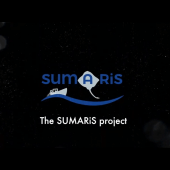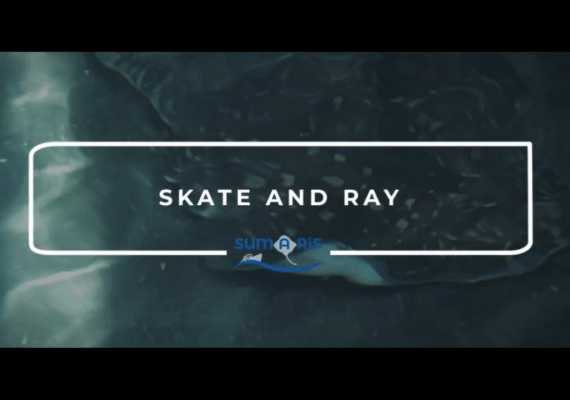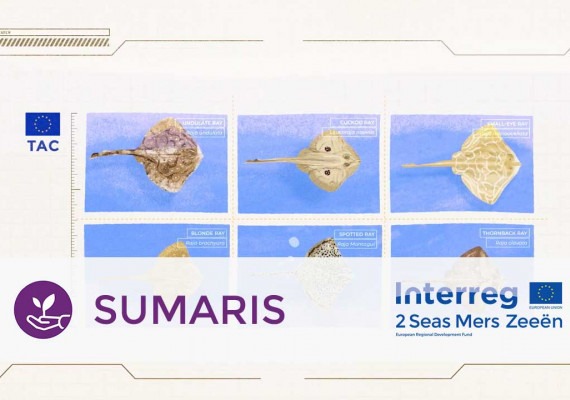SUMARiS
Sustainable management of rays and skates
Priority Axis
Resource Efficient EconomySpecific objective
Efficient Use of Resources and Materials
Lead partner
Organisation de Producteurs à la pêche FROM NordContact
Date de début
13/07/2017Date de fin
31/12/2020Project budget
2 042 812 €ERDF amount
1 225 687 €ERDF rate
60%À propos
Common challenge
Rays and skates fishery in the 2 Seas area is subject to the Common Fisheries Policy and related legal frameworks, including the quota management system and the Landing Obligation aiming to improve selective fishery. They represent a catch of over 1 000 tons a year equivalent to over 2 800 000 € turnover.
Despite an important market, rays and skates are considered as bycatch for two reasons. Firstly, due to their important size compared to other fish as rays are captured by almost all net and trawl type gears. Secondly, the rays Total Admissible Catch (TAC) is not species specific. It includes more than 10 species gathered in the same TAC category.
From an economic point of view, landing undersized and/or over-quota rays causes a big loss to fishing income, because those fishes cannot be sold for the human consumption.
The main challenge of the project were first to identify and fill the knowledge gaps on rays to provide species-specific quota built on appropriate stock assessment methods, for the main commercial species, and less-known species. Next, partners sought to evaluate the survival rate of these species in relation to the high survivability exemption, to release the juveniles back to sea.
Overall objective
Main outputs
Cross border approach
Main Achievements
The SUMARiS project was so successful that it was directly followed by the RayScan project in 2020, led by ILVO and Rederscendrale and supported by the European Maritime and Fisheries Fund (EMFF). The project developed a technical tool through a scan methodology to recognise the different species of rays and skates. They used an existing application called “Seek” built through a photo database of rays and skates.
In 2020, the project RayScan continued some points of the SUMARiS project, particularly within the training work package. It was led by ILVO and Rederscendrale and supported by the European Maritime and Fisheries Fund (EMFF). The project developed a technical tool through a scan methodology to recognise and the different species of rays and skates. They used an existing application called “Seek” built through a photo database of rays and skates.
The SUMARiS partnership organised the Management Conference on the 16-17 the May 2019, with scientists, fishers, fisheries managers and representant of NGOs from England, Wales, France, Belgium, Ireland, Italy and the Netherlands. They aimed to work together to find a solution regarding the Joint-Strategy. Partners then decided to select and developed furthermore the two most appreciated proposals (TAC proportion for thornback rays and minimum sizes). They promoted these proposals at the Management Meeting with the DG MARE at the final event on the 30th of September 2020.
Testimonial

The European fishermen see more and more skate and rays in their nets, so it’s a useful achievement of the consortium to have succeeded in increasing the scientific knowledge of various skate and ray species in the English Channel and the North Sea. During several trips on English, French and Belgian fishing vessels missing data were collected and the survival rate of by-caught rays was studied. By obtaining new data to elaborate management strategies for the skate and ray fishery, SUMARiS contributes to the sustainability objectives of the European Fisheries Policy. In addition, thanks to training workshops and free information and education tools, the SUMARiS project has enhanced the support by fishermen and other workers in the sector for adopting best practice in handling of the skate and ray species on board of the vessels and ashore and for learning how to identify them correctly.
Emiel Brouckaert, Chief Executive of the Rederscentrale



